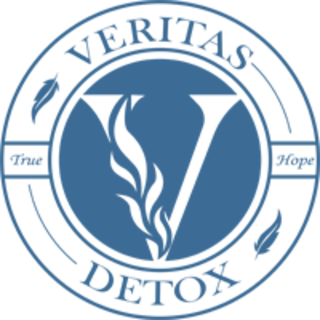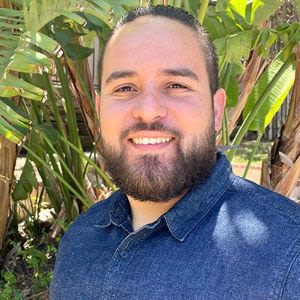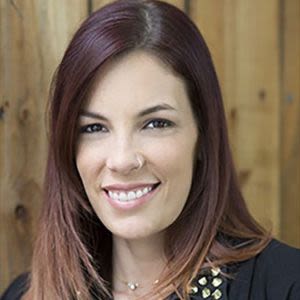






Veritas Detox and Residential
Verified Center
This provider's information has been quality-checked by Recovery.com's Research Team for accuracy and completeness, including center verification through appropriate third-party organizations.
Treatment Focus
This center treats substance use disorders and co-occurring mental health conditions. Your treatment plan addresses each condition at once with personalized, compassionate care for comprehensive healing.
Primary Level of Care
Offering intensive care with 24/7 monitoring, residential treatment is typically 30 days and can cover multiple levels of care. Length can range from 14 to 90 days typically.
Treatment Focus
This center treats substance use disorders and co-occurring mental health conditions. Your treatment plan addresses each condition at once with personalized, compassionate care for comprehensive healing.
Primary Level of Care
Offering intensive care with 24/7 monitoring, residential treatment is typically 30 days and can cover multiple levels of care. Length can range from 14 to 90 days typically.
Provider's Policy
Veritas Detox works with most insurance providers. Our admissions team works around-the-clock to ensure that those that need help have the access to get it. Verify your benefits and one of our treatment consultants will get back to you with more information on how you can get started.
Veritas Detox and Residential
Veritas Detox and Residential
About Veritas Detox and Residential
Veritas Detox is a dual-diagnosis alcohol and drug treatment center in Los Angeles, California. Veritas Detox provides a welcoming environment for medically monitored detox, inpatient rehab, and day treatment, taking a holistic approach to recovery. Upon arriving at Veritas Detox, clients are assigned a treatment team including a medical doctor, psychiatrist, case manager, and nursing staff. Clients can enjoy physical therapy, yoga sessions, fitness classes, group therapy sessions, 12-Step facilitation, and individual counseling throughout treatment.
Treating All Aspects of Addiction
Veritas Detox takes a comprehensive, whole-person approach to treatment. Their dual-diagnosis focus treats co-occurring mental health conditions like depression, anxiety, post-traumatic stress disorder (PTSD), schizophrenia, attention deficit hyperactivity disorder (ADHD), and bipolar disorder. Clients meet with their psychiatrist twice a week to monitor progress and manage co-occurring conditions. They treat the mind, body, and spirit, helping clients instill hope, develop coping tools, and create a sense of purpose. Holistic and extracurricular activities include yoga, mediation, group therapy, and classes on creative writing, music, and acting.
Quality Clinical Care And a Space to Heal
Veritas Detox’s expert team of clinical, mental health, and facility staff make them a place of holistic healing. They monitor detox and residential stays, with a 24/7 team of nurses and case managers to make treatment as comfortable and safe as possible. Veritas Detox’s peaceful hilltop location provides privacy and serenity during inpatient treatment. Their day treatment program (partial hospitalization) offers flexibility with treatment during the day and the ability to return home in the evening.
Recover in Luxury
Veritas Detox offers a modern, spacious home with a beautiful view overlooking the California hills. They welcome service animals and have flexible technology policies in residential treatment. Their luxurious bedroom accommodations are private or shared, with spacious en-suite bathrooms. Clients can enjoy outdoor amenities like a saltwater pool, hot tub, fire pit, patio, and relaxing deck area.

Highlights from the Center
Highlights
These highlights are provided by and paid for by the center.
Pet Friendly
On-site Medical Detox
Private Rooms Available
Tech Friendly
Center Overview
Treatment Focus
This center treats substance use disorders and co-occurring mental health conditions. Your treatment plan addresses each condition at once with personalized, compassionate care for comprehensive healing.
Joint Commission Accredited
The Joint Commission accreditation is a voluntary, objective process that evaluates and accredits healthcare organizations (like treatment centers) based on performance standards designed to improve quality and safety for patients. To be accredited means the treatment center has been found to meet the Commission's standards for quality and safety in patient care.

Insurance Accepted
Cash Pay Rates
Estimated Cash Pay Rate
Center pricing can vary based on program and length of stay. Contact the center for more information. Recovery.com strives for price transparency so you can make an informed decision.
Luxury rehab centers offer a unique blend of luxurious amenities and high-quality treatment. From private suites to gourmet dining, personal trainers to spa treatments, these facilities provide a high level of comfort and discretion.

Meet Your Care Team

Dr. Shannon Dobbs
Clinical Director

Geoffrey A. Booth
Medical Director
M.D.

Dr. Rod Amiri
Psychiatrist
M.D.

Jordan Aronoff
Program Director
B.A. in Behavioral Sciences

Jackie Smith
Director of Nursing
LVN

Tina Aghai
Therapist
Master’s in Clinical Psychology, Marriage and Family

James Blinstrubas
Operations Manager

Nick Jarvis
Director of Admissions

Alan Cortes
Case Manager
AMFT

Leila Martin
Director of Human Resources




Levels of Care






Your Care Options
Specializations
Alcohol
Using alcohol as a coping mechanism, or drinking excessively throughout the week, signals an alcohol use disorder.
Co-Occurring Disorders
A person with multiple mental health diagnoses, such as addiction and depression, has co-occurring disorders also called dual diagnosis.
Cocaine
Cocaine is a stimulant with euphoric effects. Agitation, muscle ticks, psychosis, and heart issues are common symptoms of cocaine abuse.
Opioids
Opioids produce pain-relief and euphoria, which can lead to addiction. This class of drugs includes prescribed medication and the illegal drug heroin.
Residential
In a residential rehab program, patients live onsite, with access to daily treatment and 24-hour care. An average stay is 30-90 days.
Who We Treat
Young Adults
Emerging adults ages 18-25 receive treatment catered to the unique challenges of early adulthood, like college, risky behaviors, and vocational struggles.
LGBTQ+
Addiction and mental illnesses in the LGBTQ+ community must be treated with an affirming, safe, and relevant approach, which many centers provide.
Midlife Adults
For adults ages 40+, treatment shifts to focus on the unique challenges, blocks, and risk factors of their age group, and unites peers in a similar community.
Professionals
Busy, high-ranking professionals get the personalized treatment they need with greater accommodations for work, privacy, and outside communication.
Approaches
Evidence-Based
A combination of scientifically rooted therapies and treatments make up evidence-based care, defined by their measured and proven results.
Family Involvement
Providers involve family in the treatment of their loved one through family therapy, visits, or both–because addiction is a family disease.
Individual Treatment
Individual care meets the needs of each patient, using personalized treatment to provide them the most relevant care and greatest chance of success.
Personalized Treatment
The specific needs, histories, and conditions of individual patients receive personalized, highly relevant care throughout their recovery journey.
Therapies
1-on-1 Counseling
Patient and therapist meet 1-on-1 to work through difficult emotions and behavioral challenges in a personal, private setting.
Play Therapy
This approach is commonly used with children. It incorporates elements of play and self-expression, like boardgames, finger painting, dolls, and blocks.
Rational Emotive Behavior Therapy
A type of cognitive therapy that identifies negative self-defeating thoughts and behaviors, rewriting beliefs to be positive, empowering, and present.
Adventure Therapy
This experiential approach uses the physical and emotional challenges of outdoor activities as tools for personal growth.
Animal Therapy
Animals can inspire trust and self-worth. In this experiential therapy, guided interactions are used to improve social skills and emotion regulation.
Art Therapy
Visual art invites patients to examine the emotions within their work, focusing on the process of creativity and its gentle therapeutic power.
Couples Counseling
Partners work to improve their communication patterns, using advice from their therapist to better their relationship and make healthy changes.
Conditions We Treat
Trauma
Some traumatic events are so disturbing that they cause long-term mental health problems. Those ongoing issues can also be referred to as "trauma."
Substances We Treat
Alcohol
Using alcohol as a coping mechanism, or drinking excessively throughout the week, signals an alcohol use disorder.
Benzodiazepines
Benzodiazepines are prescribed to treat anxiety and sleep issues. They are highly habit forming, and their abuse can cause mood changes and poor judgement.
Chronic Relapse
Consistent relapse occurs repeatedly, after partial recovery from addiction. This condition requires long-term treatment.
Co-Occurring Disorders
A person with multiple mental health diagnoses, such as addiction and depression, has co-occurring disorders also called dual diagnosis.
Cocaine
Cocaine is a stimulant with euphoric effects. Agitation, muscle ticks, psychosis, and heart issues are common symptoms of cocaine abuse.
Drug Addiction
Drug addiction is the excessive and repetitive use of substances, despite harmful consequences to a person's life, health, and relationships.
Ecstasy
Ecstasy is a stimulant that causes intense euphoria and heightened awareness. Abuse of this drug can trigger depression, insomnia, and memory problems.
Heroin
Heroin is a highly addictive and illegal opioid. It can cause insomnia, collapsed veins, heart issues, and additional mental health issues.
Languages
Aftercare
Care Designed for Your Needs
Personal Amenities
Amenities
Special Considerations
Pet Friendly
For greater comfort and healing, pet-friendly treatment centers welcome dogs and animal companions to stay with their owners while they attend treatment.
Executive Program
Addiction and mental health treatment for executives typically involves high discretion, greater technology access, and more private, 1-on-1 care.
Flexible technology policies
Centers with flexible technology policies allow professionals to stay in touch with work and give patients a greater sense of connection and normalcy.
Gender-specific groups
Patients in gender-specific groups gain the opportunity to discuss challenges unique to their gender in a comfortable, safe setting conducive to healing.
Activities
Yoga
Yoga is both a physical and spiritual practice. It includes a flow of movement, breathing techniques, and meditation.
Off-Site Amenities

What people are saying
Treatment
5.0
Accommodations
5.0
Food & Nutrition
5.0
Value
5.0
Matthew
Treatment in 2022 • (30 days) • Reviewed 09/16/22
Former Client
•Professional Musician
•Michigan
Raekwon Young
Treatment in 2021 • (30 days) • Reviewed 07/18/22
Former Client
•Restaurant





